
Find Help
More Items From Ergsy search
-

Are AI body scans reliable?
Relevance: 100%
-
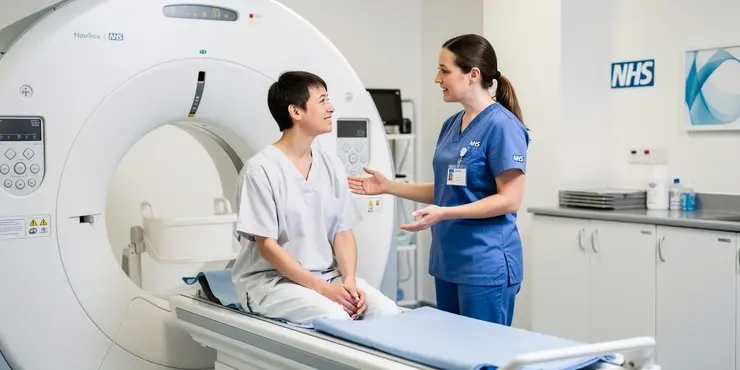
Going For a CT Scan
Relevance: 43%
-
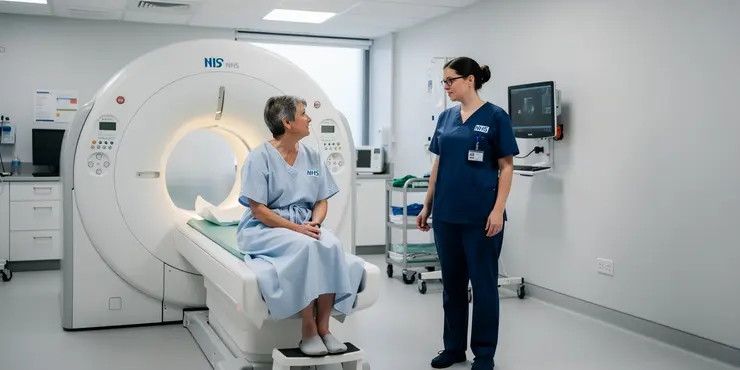
I'm having an MRI scan
Relevance: 42%
-
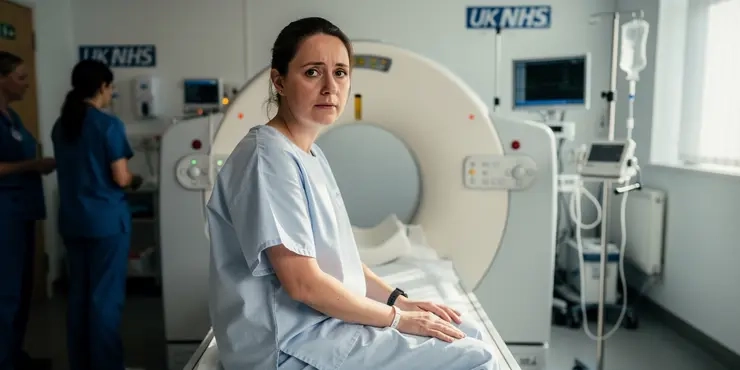
So, you're having a CT scan...
Relevance: 41%
-
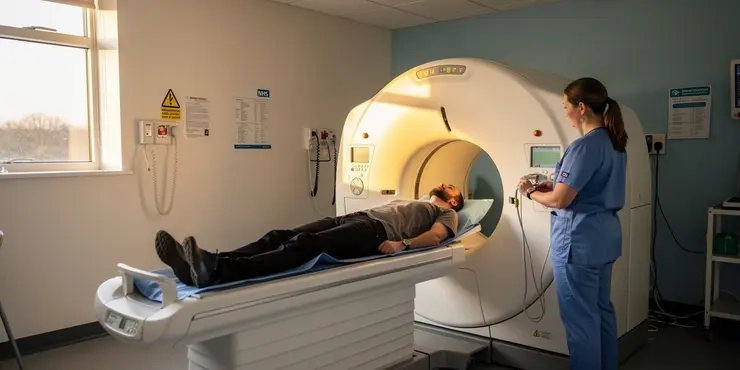
Having a CT Scan in Tayside
Relevance: 41%
-
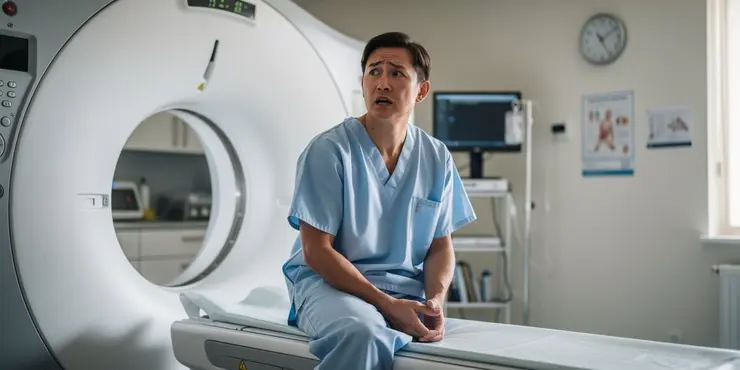
Going for an MRI Scan
Relevance: 41%
-
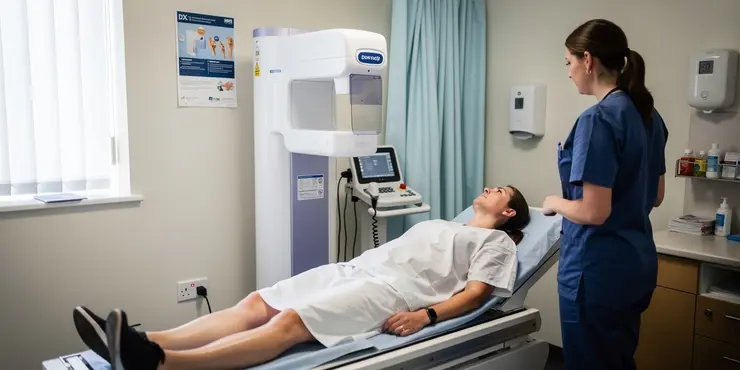
What to expect of a DXA Scan
Relevance: 40%
-
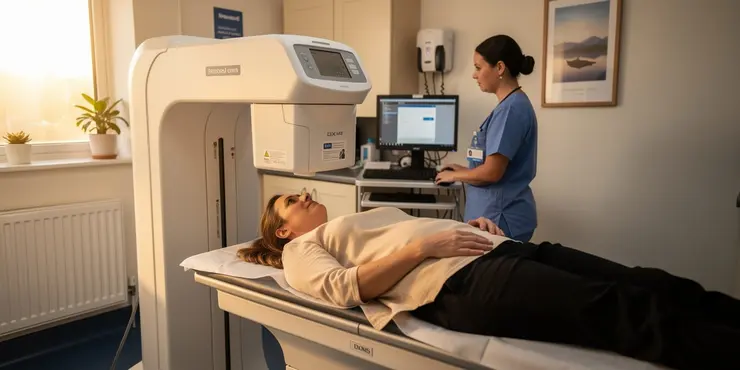
What to expect of a DXA Scan
Relevance: 39%
-
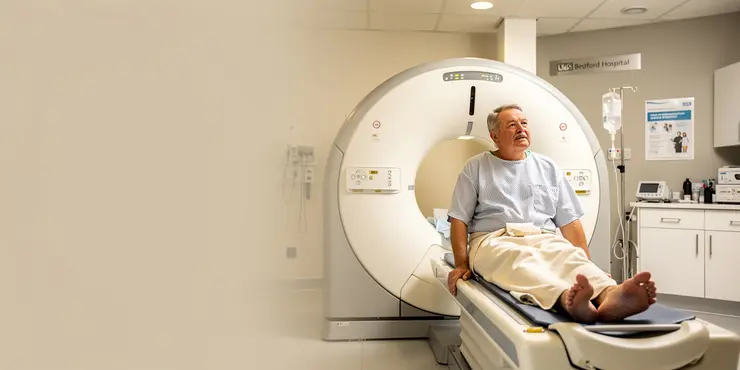
Having a CT scan in Hospital - What's it like having a CT scan at Bedford Hospital?
Relevance: 39%
-
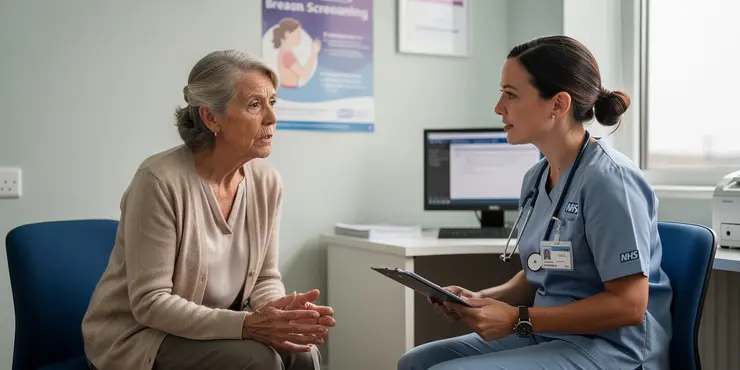
How reliable are mammograms?
Relevance: 38%
-
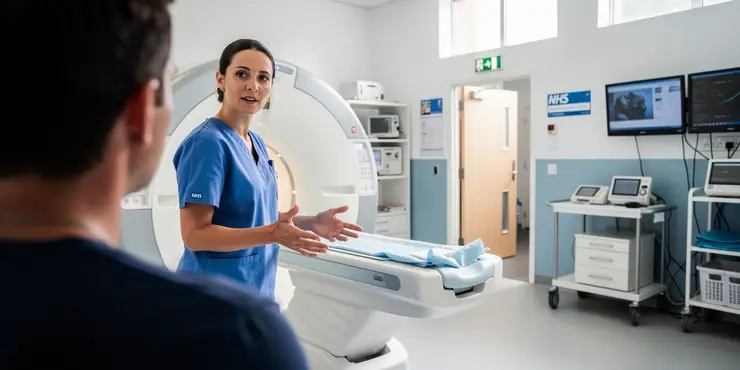
How Does an MRI Scan Work?
Relevance: 38%
-
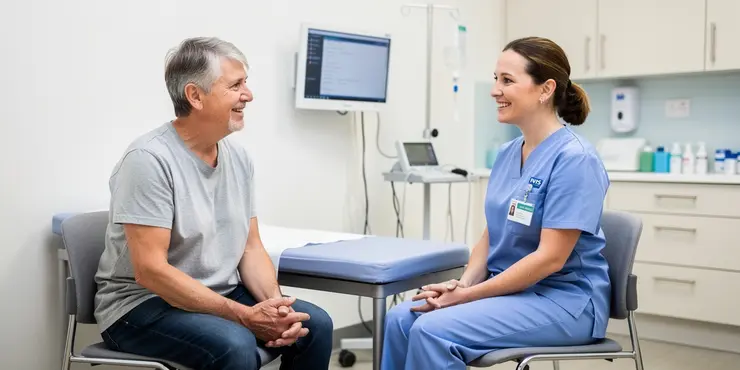
The FDG PET Scan: What to expect
Relevance: 38%
-
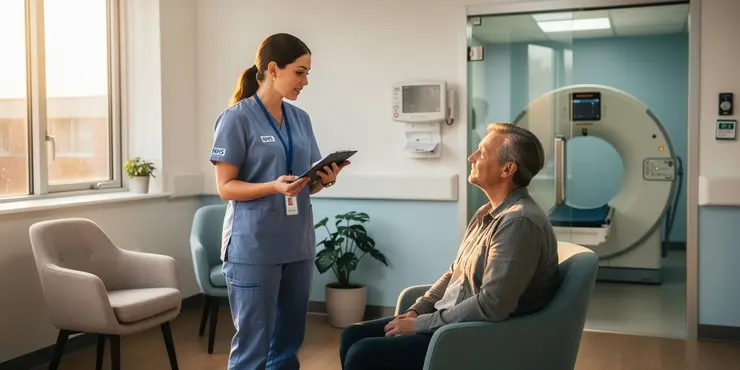
What is a low-dose CT scan for lung cancer?
Relevance: 37%
-
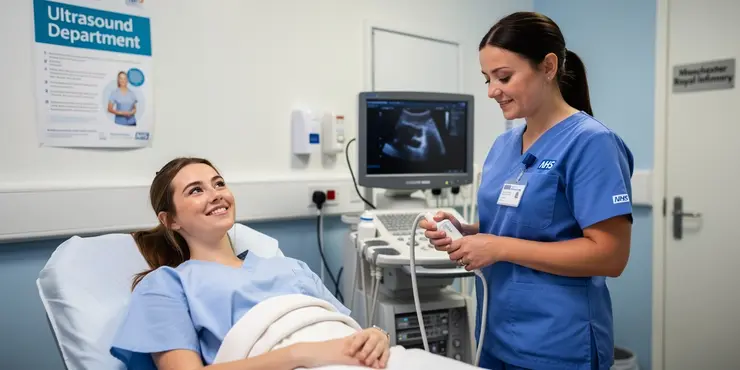
Having an Ultrasound scan at Manchester Royal Infirmary
Relevance: 36%
-

Your PET/CT scan at University College Hospital
Relevance: 36%
-
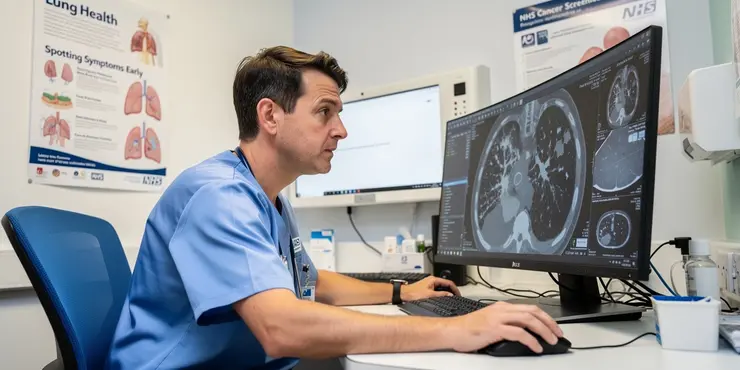
How do AI algorithms detect lung cancer in scans?
Relevance: 35%
-
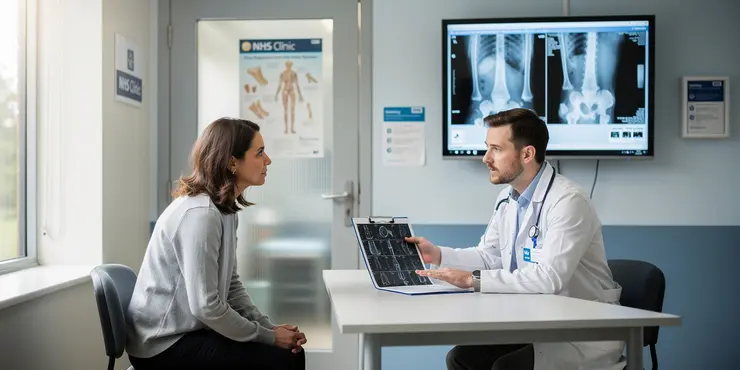
What is the purpose of a bone scan in prostate cancer treatment?
Relevance: 34%
-

Patient video: What to expect when having a bone scan
Relevance: 34%
-
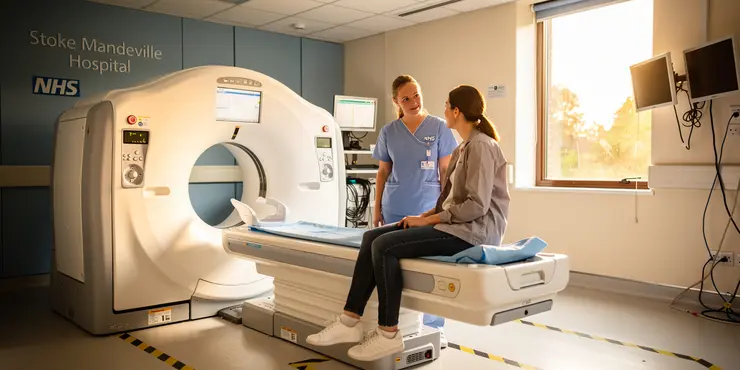
Having a CT Scan at Stoke Mandeville Hospital - Buckinghamshire Healthcare NHS Trust
Relevance: 33%
-
Where can I get reliable pensions advice?
Relevance: 31%
-

Is advice from my bank on pensions reliable?
Relevance: 31%
-

Where can individuals find reliable information on the safety of medications during pregnancy?
Relevance: 29%
-

Is the Pension Wise service reliable for pension advice?
Relevance: 29%
-

Can testicular cancer spread to other parts of the body?
Relevance: 27%
-
Can online patient forums provide reliable information on waiting times?
Relevance: 26%
-
Is salt necessary for the body?
Relevance: 26%
-
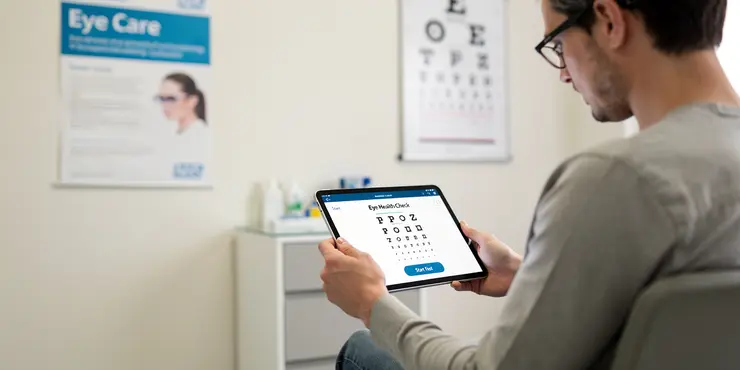
Where can I find reliable self-testing tools for my eyes?
Relevance: 24%
-

Are there regulations on transporting the body before the funeral?
Relevance: 23%
-
How does the body process salt?
Relevance: 23%
-
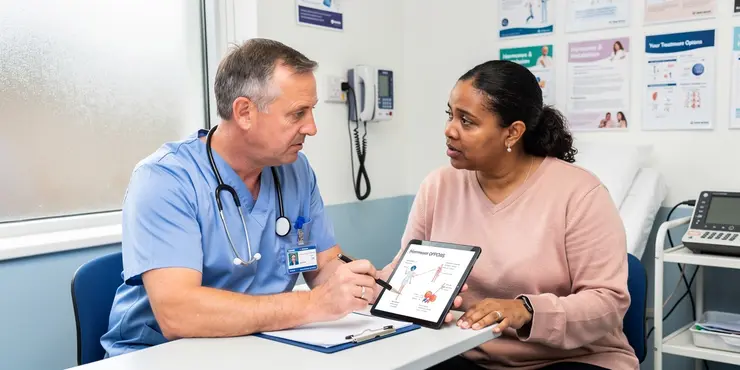
Where is GLP-1 produced in the body?
Relevance: 22%
-
Does tanning on sunbeds help the body produce vitamin D?
Relevance: 22%
-
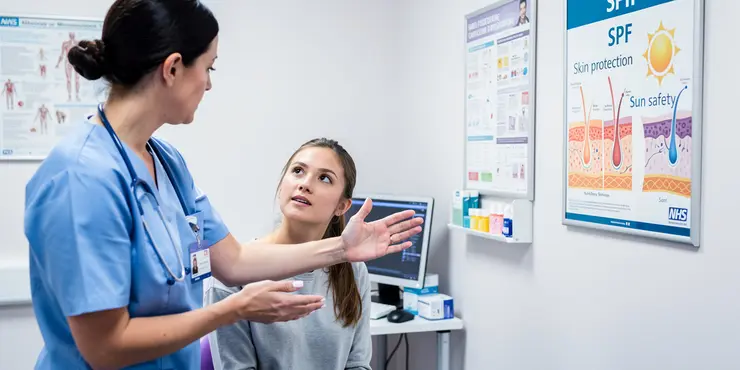
Should I use a different SPF for my face and body?
Relevance: 22%
-
Does the body store all the fat I consume?
Relevance: 22%
-

Can bowel cancer spread to other parts of the body?
Relevance: 22%
-

Can impetigo spread to other parts of my body?
Relevance: 22%
-
What is body dysmorphia and how is it related to eating disorders?
Relevance: 21%
-

How is cortisol regulated in the body?
Relevance: 21%
-
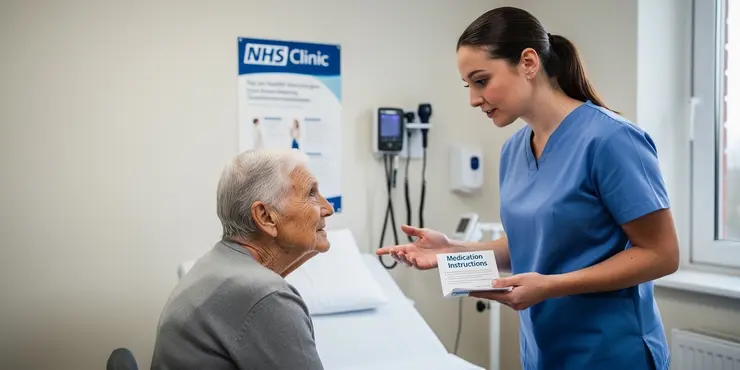
What role do regulatory bodies play in fee transparency?
Relevance: 21%
-
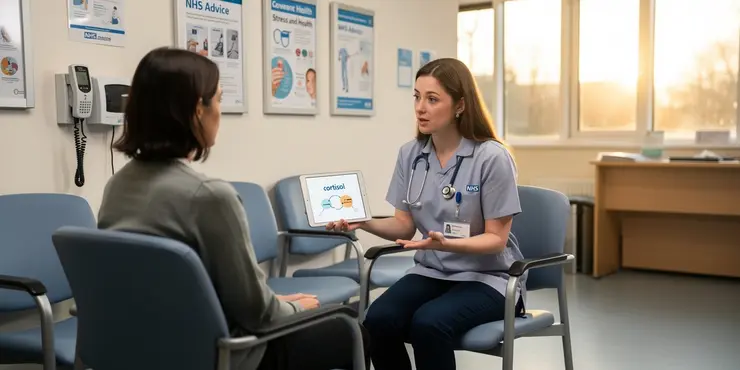
How does cortisol affect the body's stress response?
Relevance: 20%
-
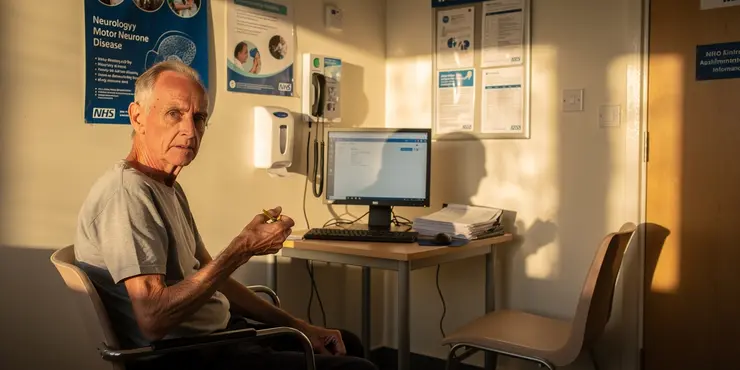
How does motor neurone disease affect the body?
Relevance: 19%
Are AI Body Scans Reliable?
The use of artificial intelligence (AI) in body scanning technology is becoming increasingly prevalent, aiming to offer enhanced medical diagnostics and preventative healthcare insights. However, one important question remains: how reliable are these AI body scans, particularly in the context of the United Kingdom’s healthcare landscape?
Benefits of AI Body Scans
AI body scans present several advantages, primarily due to their ability to process large amounts of data quickly and accurately. By analysing medical imaging—such as MRIs, CT scans, and X-rays—AI algorithms can identify patterns and anomalies that may be indicative of health issues. This capability is particularly beneficial in early detection of diseases like cancer, where early intervention dramatically improves outcomes. In the UK, where healthcare resources can be stretched thin, AI body scans can support the National Health Service (NHS) by accelerating diagnosis and potentially reducing the burden on healthcare professionals.
Concerns About Reliability
Despite their potential benefits, there are several concerns regarding the reliability of AI body scans. Firstly, the accuracy of these systems heavily depends on the data they have been trained on. If this data lacks diversity or is not representative of the population, it can lead to misdiagnosis or missed diagnosis, particularly among minority groups. Additionally, AI systems can sometimes struggle with unusual cases or novel conditions that were not present in the training data, which raises questions about generalisability. In the UK, ensuring that AI training datasets reflect the full diversity of its population is critical to enhancing reliability.
Regulation and Ethical Considerations
In the UK, stringent regulation is necessary to ensure the safety and efficacy of AI body scanning technologies. The Medicines and Healthcare products Regulatory Agency (MHRA) oversees the approval of medical devices, including those powered by AI, to safeguard public health. Ethical considerations also play a significant role; transparency in how AI decisions are made and addressing data privacy concerns are crucial to fostering public trust. The compliance with General Data Protection Regulation (GDPR) is a must to protect patient data and maintain confidence in AI technologies.
The Future of AI Body Scans in the UK
As AI technology continues to advance, its role in healthcare—particularly in body scanning—is likely to expand. Continuous improvements in algorithm accuracy, combined with rigorous regulation and ethical oversight, will help to enhance reliability. In the UK, ongoing research and investment in AI technologies are crucial to harnessing their potential benefits while mitigating risks. Collaboration between healthcare providers, regulators, and AI developers will be key to ensuring AI body scans are both reliable and accessible to all UK residents.
Are AI Body Scans Reliable?
AI, or artificial intelligence, is being used to scan bodies. This helps doctors find health problems early. But, are these AI body scans reliable in the UK?
Benefits of AI Body Scans
AI body scans have many good points. They can look at lots of pictures from tests like MRIs and X-rays fast. AI helps find signs of sickness, like cancer, early on. In the UK, where doctors are often busy, AI scans can make their job easier and quicker.
Concerns About Reliability
But, there are worries about how reliable AI body scans are. They can make mistakes if the data they learned from isn’t good for everyone. This can be a problem for people who are different from those in the training data. Sometimes, AI might not understand new or rare conditions. It is important for AI in the UK to use data that represents all different kinds of people.
Regulation and Ethical Considerations
In the UK, there are strict rules to keep AI body scans safe. The Medicines and Healthcare products Regulatory Agency (MHRA) checks these tools. It's important for people to know how AI makes decisions. We also need to protect people’s private information, following the General Data Protection Regulation (GDPR).
The Future of AI Body Scans in the UK
AI technology is getting better. AI body scans will be used more in the future. With better technology and rules, AI scans can be more reliable. The UK needs more research and money to make AI even better. Doctors, rule-makers, and AI creators must work together to make AI scans safe and available for everyone in the UK.
Frequently Asked Questions
Are AI body scans accurate for medical diagnostics?
AI body scans can be highly accurate for certain diagnostics, but they should be used in conjunction with professional medical advice for the most reliable results.
Can AI body scans detect all types of medical conditions?
AI body scans are proficient in detecting specific conditions, particularly those related to imaging data, but they do not cover all medical conditions comprehensively.
How do AI body scans work?
AI body scans use advanced algorithms to analyse medical images and identify patterns that might indicate specific health conditions.
Are AI body scans used in the UK healthcare system?
Yes, AI body scans are increasingly being integrated into the UK healthcare system to improve diagnostic efficiency and accuracy.
Do AI body scans replace the need for human radiologists?
No, AI body scans are tools that assist radiologists by providing additional insights, but expert human interpretation remains essential.
What are the benefits of using AI body scans?
Benefits include faster diagnosis, potential for early detection of diseases, increased accuracy, and assisting in managing large volumes of imaging data.
Are AI body scans safe?
AI body scans are generally safe as they involve digital analysis of already acquired imaging data, similar to traditional imaging techniques.
How reliable are AI body scans compared to traditional methods?
AI body scans can provide more precise results in some cases, though their effectiveness depends on the specific technology and the healthcare setting.
What are the limitations of AI body scans?
Limitations include the potential for algorithmic bias, requirement for high-quality data, and limitation to the conditions they have been specifically trained to detect.
Can AI body scans reduce healthcare costs?
AI body scans have the potential to reduce healthcare costs by improving diagnostic efficiency and reducing the need for repeated testing.
How are AI body scan results validated?
Results are typically validated through clinical trials and by comparing them to established diagnostic outcomes from human experts.
Are there any privacy concerns with AI body scans?
Privacy concerns exist regarding data handling and storage, requiring adherence to strict data protection regulations like the UK's GDPR.
What conditions are AI body scans most effective in detecting?
AI body scans are particularly effective in detecting conditions related to imaging data such as cancer, fractures, and cardiovascular diseases.
Will AI body scanning technology continue to improve?
Yes, ongoing research and development are expected to enhance AI body scanning capabilities and accuracy over time.
Can patients request an AI body scan specifically?
Patients in the UK might be able to request AI scans through their healthcare provider, depending on availability and suitability for their condition.
Can AI body scans help doctors find health problems?
AI body scans can help find health problems. They work best when a doctor checks the results with you. This way, you get the best answers.
Can AI body scans find all health problems?
AI body scans are good at finding some health problems, especially ones you can see in pictures. But they don't find every health problem.
Here are some tips to make reading easier:
- Use a ruler to keep your place.
- Read slowly and take breaks if you need to.
- Ask someone to read with you if you want help.
How do AI body scans work?
AI body scans use special computers to look at your body.
These computers are very smart. They can take pictures or videos of your body.
AI looks at these pictures to learn more about you. It can find out if you are healthy or if you need help.
AI is like a helper. It works with doctors to make sure you are okay.
Tools that might help: Talk to a friend or ask a teacher if you need help understanding.
AI body scans are special computer programs. They look at pictures of your body to find out if there is anything wrong with your health.
Does the UK use body scans with AI in healthcare?
The UK healthcare system uses special computer tools called AI to help look at body scans. These tools can help doctors check if a person is healthy. If you need support reading this, you can ask someone to help you or use a program that reads words out loud.
Yes, AI body scans are being used more and more in UK hospitals. They help doctors find out what is wrong with people faster and better.
Do AI Body Scans Mean We Don't Need Human Radiologists Anymore?
AI body scans are special computer programs. They can look at pictures of your body, like X-rays, to find out what's wrong. But, we still need human radiologists.
Radiologists are doctors who understand these pictures very well. They make sure the AI is correct and help decide what to do next.
Support tools like highlighters can help focus on important words while reading. You can also use apps that read text out loud.
No, AI body scans are tools that help doctors. They give extra information, but doctors still need to make the important decisions.
Why is it good to use AI body scans?
AI body scans use special computers to look at your body. They help doctors see inside your body without needing to cut it open. This can make it easier to know what's wrong or check if you are healthy.
Here are some good things about using AI body scans:
- They help doctors find out what is wrong faster.
- They do not hurt. You do not feel any pain.
- They can stop you from needing other tests that take a long time.
- They show clear pictures of the inside of your body.
If reading is hard, try asking someone to read it with you. Sometimes using pictures or videos can help you understand better, too.
Good things about this are finding out what's wrong faster, spotting sicknesses early, getting things right more often, and helping doctors look at lots of pictures from tests.
Are AI body scans safe?
AI body scans are tests that use computers to look at your body. They help doctors find out what is happening inside.
It is important to know if these scans are safe. Doctors and scientists check them to make sure they do not hurt people.
If you are worried, talk to a doctor or a nurse. They can explain more and help you feel better.
Using simple tools like picture charts or videos can help you understand how AI body scans work.
AI body scans are safe. They use computers to look at pictures of the body, just like normal body scans.
How good are AI body scans compared to old ways?
People want to know if using computers to check our bodies is as good as the old ways doctors used.
If you find reading hard, try these tips:
- Read out loud. Hearing the words can help you understand them better.
- Use a dictionary to look up hard words.
- Ask someone to explain it to you.
- Break the text into smaller parts and read it slowly.
AI body scans can give very accurate results. But how good they are can change. It depends on the type of technology and where they are used.
What can't AI body scans do?
Limits are things like unfair computer rules, needing really good data, and only working in situations they were taught to understand.
Can AI body scans help save money on healthcare?
AI body scans can help doctors find out what's wrong faster. This can save money because people might not need to do as many tests. This helps make healthcare cheaper.
How do we check if AI body scan results are correct?
AI body scans are checked to make sure they are right. Here are some ways to check:
- Compare the results with tests done by doctors.
- Use other machines to double-check the AI results.
- Ask experts to look at the scans and agree they are correct.
Tools like pictures, videos, and audio can help make this information easier to understand.
We check results by doing special tests with people. We also compare them to what doctors say.
Do AI body scans have any privacy issues?
AI body scans use computers to look at your body's image.
These scans might see private things about you.
Some people worry about who sees these scans.
To be safe, you can:
- Ask who can see your scan.
- Make sure your information stays private.
- Use strong passwords.
- Talk to someone you trust about your privacy worries.
People worry about keeping information safe and private. We need to follow important rules to protect this information, like the UK's GDPR rule.
What health problems can AI body scans find best?
AI body scans are really good at finding health problems by looking at pictures. They can help find things like cancer, broken bones, and heart diseases.
To make reading easier, you can use tools that read text out loud or highlight words as you read. Taking breaks and using a ruler or finger to keep your place can also help.
Will AI body scanning technology get better?
AI body scanning helps look at people's bodies using special computers.
This technology is always changing and getting better.
People work hard to make the computers smarter and more helpful.
To understand this better, you can:
- Ask someone to explain it to you.
- Watch a short video about AI technology.
- Look at pictures or diagrams.
Yes, scientists are working to make AI body scanning better and more accurate. This will happen as time goes on.
Can patients ask for a special computer body scan?
People in the UK may be able to ask for AI scans through their doctor. It depends if the scans are ready to use and if they are right for the person's health problem.
Useful Links
This website offers general information and is not a substitute for professional advice.
Always seek guidance from qualified professionals.
If you have any medical concerns or need urgent help, contact a healthcare professional or emergency services immediately.
Some of this content was generated with AI assistance. We’ve done our best to keep it accurate, helpful, and human-friendly.
- Ergsy carfully checks the information in the videos we provide here.
- Videos shown by Youtube after a video has completed, have NOT been reviewed by ERGSY.
- To view, click the arrow in centre of video.
- Most of the videos you find here will have subtitles and/or closed captions available.
- You may need to turn these on, and choose your preferred language.
- Go to the video you'd like to watch.
- If closed captions (CC) are available, settings will be visible on the bottom right of the video player.
- To turn on Captions, click settings .
- To turn off Captions, click settings again.
More Items From Ergsy search
-

Are AI body scans reliable?
Relevance: 100%
-

Going For a CT Scan
Relevance: 43%
-

I'm having an MRI scan
Relevance: 42%
-

So, you're having a CT scan...
Relevance: 41%
-

Having a CT Scan in Tayside
Relevance: 41%
-

Going for an MRI Scan
Relevance: 41%
-

What to expect of a DXA Scan
Relevance: 40%
-

What to expect of a DXA Scan
Relevance: 39%
-

Having a CT scan in Hospital - What's it like having a CT scan at Bedford Hospital?
Relevance: 39%
-

How reliable are mammograms?
Relevance: 38%
-

How Does an MRI Scan Work?
Relevance: 38%
-

The FDG PET Scan: What to expect
Relevance: 38%
-

What is a low-dose CT scan for lung cancer?
Relevance: 37%
-

Having an Ultrasound scan at Manchester Royal Infirmary
Relevance: 36%
-

Your PET/CT scan at University College Hospital
Relevance: 36%
-

How do AI algorithms detect lung cancer in scans?
Relevance: 35%
-

What is the purpose of a bone scan in prostate cancer treatment?
Relevance: 34%
-

Patient video: What to expect when having a bone scan
Relevance: 34%
-

Having a CT Scan at Stoke Mandeville Hospital - Buckinghamshire Healthcare NHS Trust
Relevance: 33%
-
Where can I get reliable pensions advice?
Relevance: 31%
-

Is advice from my bank on pensions reliable?
Relevance: 31%
-

Where can individuals find reliable information on the safety of medications during pregnancy?
Relevance: 29%
-

Is the Pension Wise service reliable for pension advice?
Relevance: 29%
-

Can testicular cancer spread to other parts of the body?
Relevance: 27%
-
Can online patient forums provide reliable information on waiting times?
Relevance: 26%
-
Is salt necessary for the body?
Relevance: 26%
-

Where can I find reliable self-testing tools for my eyes?
Relevance: 24%
-

Are there regulations on transporting the body before the funeral?
Relevance: 23%
-
How does the body process salt?
Relevance: 23%
-

Where is GLP-1 produced in the body?
Relevance: 22%
-
Does tanning on sunbeds help the body produce vitamin D?
Relevance: 22%
-

Should I use a different SPF for my face and body?
Relevance: 22%
-
Does the body store all the fat I consume?
Relevance: 22%
-

Can bowel cancer spread to other parts of the body?
Relevance: 22%
-

Can impetigo spread to other parts of my body?
Relevance: 22%
-
What is body dysmorphia and how is it related to eating disorders?
Relevance: 21%
-

How is cortisol regulated in the body?
Relevance: 21%
-

What role do regulatory bodies play in fee transparency?
Relevance: 21%
-

How does cortisol affect the body's stress response?
Relevance: 20%
-

How does motor neurone disease affect the body?
Relevance: 19%


